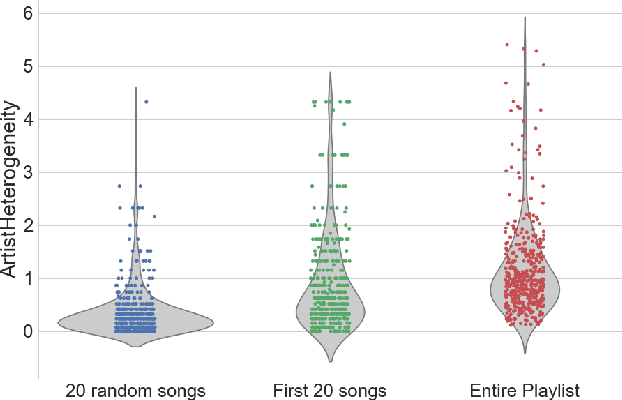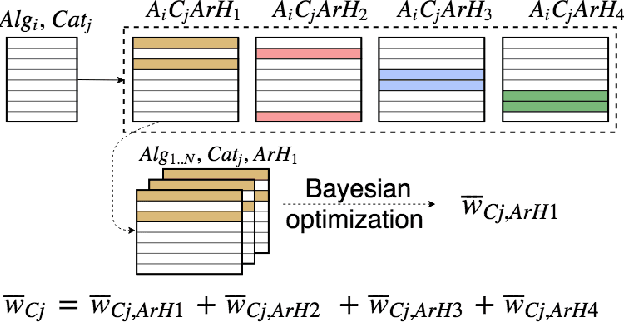Tommaso Scarlatti
Artist-driven layering and user's behaviour impact on recommendations in a playlist continuation scenario
Oct 13, 2020



Abstract:In this paper we provide an overview of the approach we used as team Creamy Fireflies for the ACM RecSys Challenge 2018. The competition, organized by Spotify, focuses on the problem of playlist continuation, that is suggesting which tracks the user may add to an existing playlist. The challenge addresses this issue in many use cases, from playlist cold start to playlists already composed by up to a hundred tracks. Our team proposes a solution based on a few well known models both content based and collaborative, whose predictions are aggregated via an ensembling step. Moreover by analyzing the underlying structure of the data, we propose a series of boosts to be applied on top of the final predictions and improve the recommendation quality. The proposed approach leverages well-known algorithms and is able to offer a high recommendation quality while requiring a limited amount of computational resources.
* Source code available here: https://github.com/MaurizioFD/spotify-recsys-challenge
Semi-supervised Neural Networks solve an inverse problem for modeling Covid-19 spread
Oct 10, 2020


Abstract:Studying the dynamics of COVID-19 is of paramount importance to understanding the efficiency of restrictive measures and develop strategies to defend against upcoming contagion waves. In this work, we study the spread of COVID-19 using a semi-supervised neural network and assuming a passive part of the population remains isolated from the virus dynamics. We start with an unsupervised neural network that learns solutions of differential equations for different modeling parameters and initial conditions. A supervised method then solves the inverse problem by estimating the optimal conditions that generate functions to fit the data for those infected by, recovered from, and deceased due to COVID-19. This semi-supervised approach incorporates real data to determine the evolution of the spread, the passive population, and the basic reproduction number for different countries.
 Add to Chrome
Add to Chrome Add to Firefox
Add to Firefox Add to Edge
Add to Edge